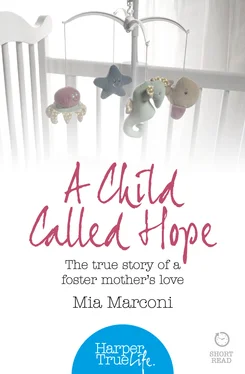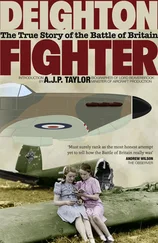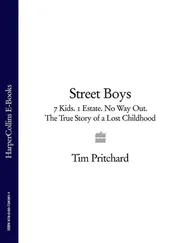She probably thought she would never see her son Benito again, but by the time he was eleven both Rita’s parents had died and none of her siblings could, or would, look after him. Up until then, Benito had thought that his grandparents were his parents. You can only imagine the shock he felt when they broke the news to him that he was illegitimate and that his real mother was living in England. He was not the youngest in the family any more, because his grandmother had had their tenth child and Benito thought he had a younger brother, although really he was his uncle.
As his family turned their backs on him, the pattern of banishment began again; he was now following in his mother’s footsteps. He must have been so frightened having to leave everything he had ever known, being sent to a country he had probably only ever heard mentioned a few times, to live with a woman he had never met, even if he had been told she was his mother. You would have thought that Rita would have been delighted to be reunited with him, but she didn’t want him with her and didn’t hide the fact. Consequently, she was always very cold and distant with him.
According to my mum, she did really love him but had no idea how to show it. I never saw her give him a kiss or a cuddle, and she was never affectionate towards us, her grandchildren. It was confusing, though, because when we all went back to Italy together she would change. In England she always seemed depressed, but in Altomonte she seemed to come alive. Nothing would stop her kissing and cuddling her brothers’ and sister’s children; she made a proper fuss of them. That must have destroyed my dad. It really upset me, because I could never understand why she would not kiss and cuddle me, her own granddaughter.
If we were at a big family gathering in Italy, and Rita suddenly became sociable and happy, Dad and I would catch each other’s eye, and that look said that we both felt really sad. Dad longed for his mother to love him and I longed for my grandmother to love me, but she never softened, not once in all those years. I still cannot understand why, but there was never the tiniest chink in her armour.
It might have been different if Dad’s own father had ever acknowledged him; then at least he would have had one parent to love. He did try to get to know him – when he was twenty-three he felt strong enough to go and find his father. Dad flew to Italy and spoke to his uncles, who knew exactly where to find the man who had refused to marry their sister all those years ago. He still lived in the same village and they saw him often.
Initially, they were not sure it was a good idea when Dad asked, but reluctantly they agreed to introduce him. It took all his courage and strength, but one afternoon he set off with an uncle to meet his father. In a strange coincidence, they met him walking along the street, and Dad could not believe how alike they looked. They were virtually identical, he said, and could have been brothers. Sheepishly, he walked over to him and said in Italian: ‘Excuse me, I am your son.’ Dad’s life could have changed in that minute if his father had given him a great big bear hug, but instead he spat right into his face. That despicable act could not have caused more pain if he had fired both barrels of a shotgun at him at point-blank range.
When Dad told me that story I could not understand the coldness of his father. I simply could not comprehend how someone could harbour so much hatred for their own flesh and blood. It was a savage rejection that I will never unravel, no matter how hard I try.
I made a real effort to accept my nan, Rita. I knew she had loved village life and had been forced to leave it all behind. She had loved her brothers and sister and had been forced to leave them too, so every time she looked at my dad, all she saw was the reason she wasn’t living the life she wanted. I always felt like she actually really hated him when he was around her. That was probably worse than the rejection by his father, because he had to deal with her coldness towards him on a daily basis. There was no escape for Dad. Where most of us have our lives shaped by love, Dad’s was shaped by constant rejection.
So by the time he met my mum, Rose, he was pretty angry, and it was a recipe for disaster. I think he was looking to be mothered, but Mum couldn’t fill in those missing years. Dad was very needy, but so was she; she had her own insecurities.
Mum’s parents were from Ireland and they ended up in Catford, south-east London. Where they lived was badly bombed during the Blitz, so their home was surrounded by shattered buildings, but they knew they were the lucky ones. They still had a home.
It might have looked ugly, but the children loved clambering over the piles of rubble, looking for little bits of shrapnel. What they were desperate to find was a real bomb – that was the prize – but thankfully, they never did.
Mum’s father was soft and gentle and genuine, but drink did not agree with him. If he’d spent the night in the pub he could turn violent, and on those occasions my grandmother, like so many women, would be on the receiving end of his frustrations.
Nan became adept at hiding the bruises and honestly gave as good as she got, using a big heavy frying pan to defend herself. Sometimes they could both be seen with black eyes, their hats pulled down over their faces in an effort to disguise their battle scars, but the neighbours knew what was happening. It was happening to some of them too.
Friday night was always dangerous, because the minute Granddad received his pay packet, he would head for his local, The Black Swan, or ‘The Mucky Duck’ as they nicknamed it. He would stay there, laughing with his pals and drinking brown ale, until he got hungry and wanted his tea. When he opened the front door, Mum would be on red alert. As soon as she detected the tell-tale smell of brown ale on his breath, she knew that it would all kick off and there would be a fight. That was her cue to run upstairs, wake her younger brother Patrick, get him up and walk him round the streets until she thought it was safe to go back home. Sometimes close neighbours (whom they called Auntie and Uncle, although they were not related) would invite them in. As many of them knew the situation, if they saw Mum and Patrick walking round late at night, hand in hand, they would let them sit by the fire until things calmed down. Mum said that there was many a time when she and Patrick fell asleep in someone else’s house.
Despite the fact that he drank and became violent, Mum idolised her dad, and he never hit his kids. He wasn’t always drunk and he loved my mum and Patrick. She remembers sitting on his knee and feeling the rough stubble on his chin. She also remembers how he would sometimes bring home little bits of shrapnel for their collection and, very occasionally, produce a bag of sweets from deep in his jacket pocket.
My granddad was an ambulance driver during the war, so he must have seen some terrible things after the bombing raids. People with their arms and legs blown off; bodies unrecognisable because they had been blown to smithereens; dead children and babies. No wonder he drank; there was no counselling in those days to help him deal with the horrors, just brown ale.
All that horror wasn’t the reason he committed suicide, though. It was a year before the end of the war and the rumour was that my nan was having an affair, and someone who was out to make trouble sent Granddad a poison-pen letter telling him so. Not long after that, he took his own life. He was depressed, he’d had enough, and he put his head in the gas oven. A lot of people said it was a cry for help and that he had not really meant to kill himself, but he did.
Mum remembers the day he died as though it were yesterday. She was seven and Patrick would have been six at the time. They walked in from school, hand in hand as usual – they always held hands – and opened the door to find the house eerily quiet. Not only was it quiet, but also the smell of gas was so strong it was choking. She opened the door to their tiny kitchen, looking around for a welcoming, familiar face, only to see her father slumped on the floor, lying absolutely still next to the cooker and clutching the letter in his left hand. The oven door was open and the gas was turned on full. Mum knew enough to turn off the gas and open a window, then she touched him, but his hands were as cold as ice. She called his name, but he didn’t answer. He was dead. Panicking, she froze, pulled Patrick to her and fell to the floor next to her dad, not knowing what to do. Occasionally she whispered, ‘Dad, Dad,’ and shook him but got no response. She has no idea how long she sat there, but she stayed where she was, rocking Patrick, in shock, until her grown-up sisters came home from work and gently lifted her off the floor.
Читать дальше












